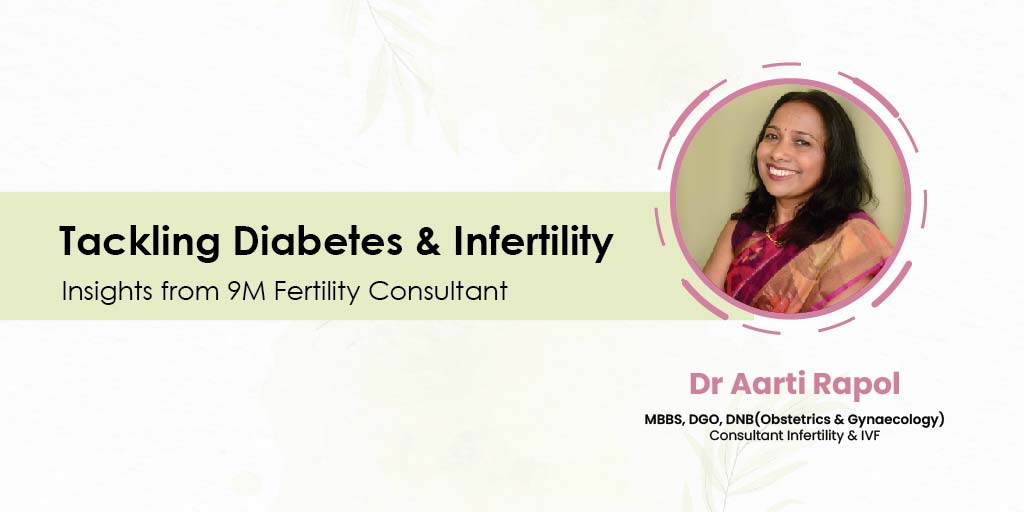In a recent article published in Hindustan Times, 9M Fertility’s Consultant, Dr. Aarti Rapol, sheds light on the intricate relationship between diabetes and fertility. With a focus on both men and women, she provides valuable insights into the Tackling Diabetes and Infertility on reproductive health and offers practical tips to manage this condition effectively. Let’s explore how diabetes can affect fertility and the proactive steps individuals can take to increase their chances of a successful pregnancy.
The Impact of Diabetes on Female Fertility
Dr. Aarti Rapol emphasizes the significant role diabetes plays in a woman’s ability to conceive. The article distinguishes between Type 1 and Type 2 diabetes, highlighting how each type affects insulin production and sugar metabolism. Additionally, gestational diabetes mellitus, a temporary form of diabetes during pregnancy, is discussed in relation to potential complications such as congenital anomalies and miscarriages. Elevated blood sugar levels in later stages of pregnancy are linked to low birth weight and increased risks of hypertension. She stresses the importance of managing diabetes effectively to mitigate these fertility challenges.
The Impact of Diabetes on Male Fertility
Dr. Aarti Rapol points out the various ways in which diabetes can affect male reproductive health, including reduced sperm quality, erectile and ejaculatory dysfunction, and abnormalities in sperm. This recognition of the multifaceted impact of diabetes on both genders emphasizes the need for comprehensive management strategies.
Managing Diabetes for Improved Fertility
The key recommendations include consistent monitoring of blood sugar levels, maintaining a healthy diet, quitting smoking, managing stress, and engaging in regular physical activity. These lifestyle modifications are crucial steps in taking control of diabetes and enhancing overall reproductive health.
Tackling Infertility and Diabetes Together
For individuals facing infertility due to diabetes, Dr. Aarti Rapol suggests considering in-vitro fertilization (IVF) as a viable option. Additionally, she emphasizes the importance of seeking guidance from IVF specialists who can customize treatment plans based on individual diagnoses. Whether opting for in-vitro fertilization, intrauterine insemination, or intracytoplasmic sperm injection (ICSI), these advanced reproductive technologies offer hope for couples facing challenges related to both male and female infertility.
Conclusion
In the article, Dr. Aarti Rapol provides valuable insights on how to manage diabetes for improved chances of having a baby. It also addresses the challenges faced by both men and women due to diabetes and offers practical tips for effectively handling the condition. If you’re dealing with both infertility and diabetes, it’s advisable to seek guidance from specialists and consider advanced fertility treatments. These steps can significantly increase the chances of a successful and healthy pregnancy.
